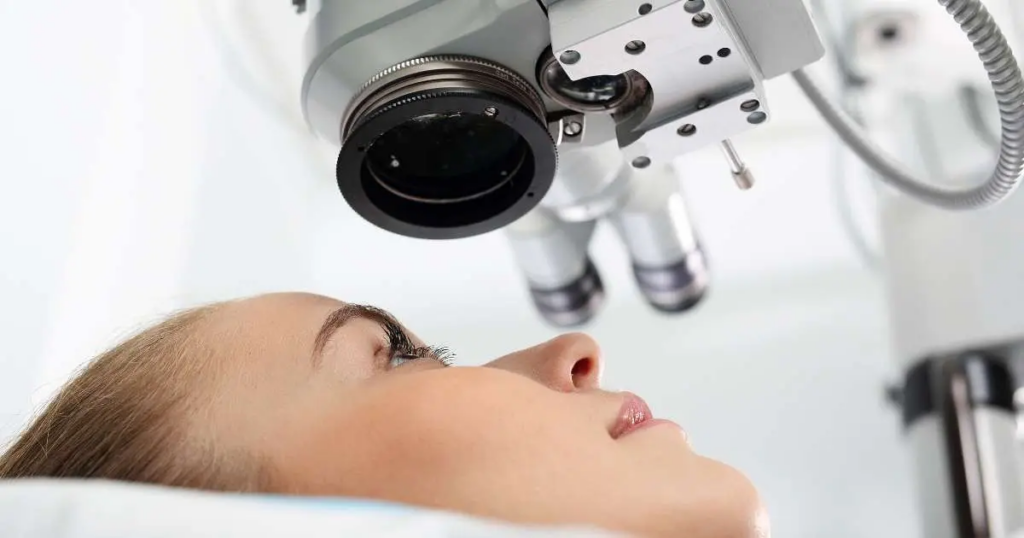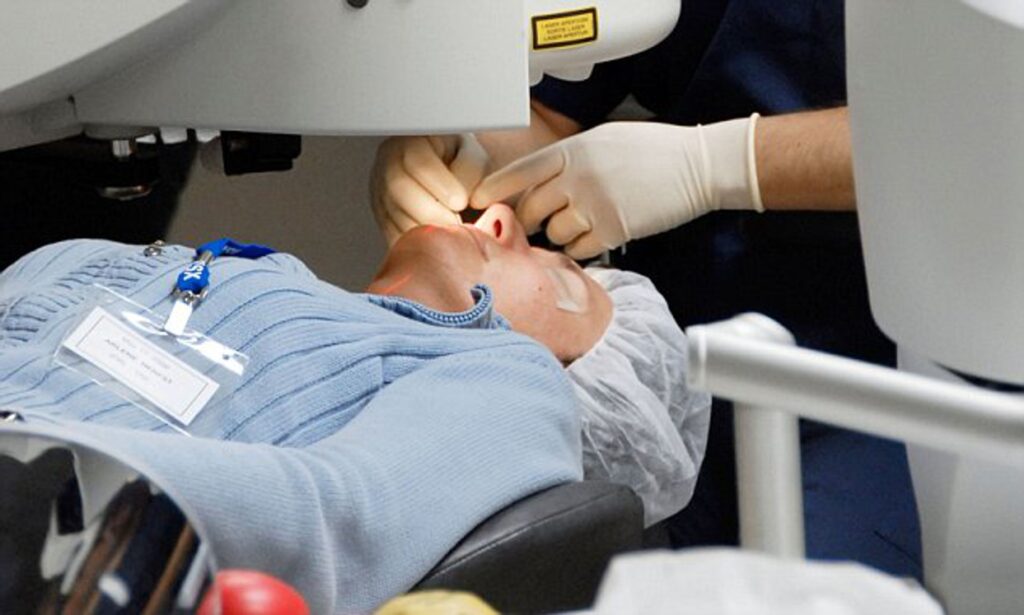Could eye surgery from LASIK help me? Many patients wonder this, and some even ask their doctors, as the operation offers the possibility of permanently eliminating the need for corrective lenses. However, not everyone can benefit from this method of correcting their vision.
If you need corrective eye surgery, you should research the procedure thoroughly and find a qualified surgeon.
Personal Eyes’ mission is to provide information to everyone interested in learning how to better their eyesight. And if you are seriously considering lasik eye surgery, you need first ensure that you are a suitable candidate.
Is LASIK a Good Option for Me?
With LASIK eye surgery, most people who have refractive eye difficulties may see clearly at 20/20 (and sometimes better) after the treatment.

The success rate for this particular form of laser eye treatment is high, and complications are uncommon. Dry eyes and brief glare issues are two examples of the kinds of minor side effects some people may experience. Yet, these issues will resolve themselves, allowing patients to reap the full benefits of having eye surgery with LASIK.
When it comes to refractive errors, the milder they are to begin with, the better the surgical outcomes will be. Patients with extreme far or nearsightedness who also have astigmatism may have less predictable outcomes.
Just What Is Involved in LASIK Surgery?
The retina, located at the back of the eye, is where most of the images we perceive are sharply focused. Images concentrated behind or in front of the retina cause hazy vision in nearsightedness, astigmatism, and hyperopia.
Instead of using corrective lenses to refract light rays, as in conventional glasses, LASIK eye surgery reshapes the dome-shaped tissue in front of the patient’s eye (the cornea).
Your eyes will be thoroughly examined by your surgeon before laser eye treatment or surgery to determine their overall health.
Also, a flap will be created before the treatment to change the cornea’s form using the appropriate cutting laser, whether that means making it flatter or steeper.
Fitting Candidates Laser Eye Surgery
Individuals with mild to moderate refractive errors and no other significant visual impairments may benefit most from LASIK eye surgery.
Examining Your Eyes
However, your eye surgeon will ask you a few questions and conduct an evaluation to see if you are a good candidate for the procedure and to rule out the presence of any problems that could complicate the therapy or lead to bad outcomes.
Among these are possible examples:
- Vision impairment due to a degenerative eye condition or a thinner cornea.
- Redness, swelling, and infection of the eyes
- Disturbances to the eyelid or an eye injury
- Feeling like your eyes are going to dry out (LASIK eye surgery may make the condition even more pronounced)
- If the patient has very large pupils, eye surgery involving LASIK may not be the best choice either.
- Glaucoma
- Cataracts
- When myopia is extremely high, the potential benefits of LASIK eye surgery may not be worth the substantial risks involved.
- If you already have very decent vision and don’t need to wear corrective lenses constantly, LASIK surgery may not be worth it.
- Presbyopia (age-related vision changes) (age-related vision changes)
- Laser eye treatment or surgery may not be a good option for people who play contact sports on a regular basis.
Other than that, you also need to have steady eyesight. Myopic young people may be advised to postpone laser vision correction by their ophthalmologists.
Your eyesight will change as you enter adulthood, so it’s best to wait until you’re at least 18 to get eye surgery with LASIK.

Taking a Look at Your Health
Not only will your eye health be assessed, but so will your overall wellness. Patients considering corrective eye surgery should be aware of the fact that the risks involved may be amplified in the presence of certain non-vision-related medical disorders.
And these disorders are;
- The presence of any illness or disorder that weakens the body’s natural defenses against infection.
- Diabetic control failure
- Immunosuppressive Medications
- Due to the risk of unintended corneal alterations, pregnant women may also be discouraged from having the surgery done.
Recognizing the Potential Obstacles
Could LASIK surgery help me? You should realise that LASIK eye surgery has a long history of success and produces excellent results before giving it your stamp of approval. Nonetheless, there is always a chance of something going wrong during surgery.
Thus, these temporary difficulties and other inconveniences may only affect a small percentage of the population:
- Dry eyes
- Double vision
- Halos
- Glare
- Overcorrections
- Undercorrections
- Issues with the Flap
- On extremely rare occasions, visual loss may also occur.
Saying Goodbye to Contacts Before Surgery
Although most individuals won’t have any issues, you should know that your doctor will likely recommend you cease wearing your contact lenses a few weeks before surgery and instead use glasses.
This is due to the fact that contact lenses create an artificial cornea, which makes exact eye measurements before surgery impossible. This could have undesirable results in the long run. Your eye doctor will customise a set of guidelines for your eye surgery with LASIK before you go under the knife.
Reasonable Hopes and Dreams
After the procedure, patients typically enjoy good or even great vision for many years. But kids may eventually need to resort to corrective lenses as they become older.
You should be aware that over – and under-corrections may occur, despite the fact that the data for LASIK eye surgery speaks of good patient outcomes and enduring results. The refractions of elderly people may worsen, which could lead to a mild decline in their visual acuity.
This won’t be an issue for the vast majority of patients. The extent to which one’s perception shifts, however, is not always predictable.
The Search for the Ideal Eye Doctor
Working with the right eye surgeon can improve your chances of successful LASIK eye treatment and restoration of your 20/20 vision if you are a candidate for the procedure.
Because your doctor is the one who takes the ultimate responsibility for determining whether you are a good LASIK eye candidate or not, you should work with a seasoned professional with a proven track record. As they will also perform the procedure and will be in charge of guiding you through post-op care, finding the best possible expert is even more crucial.
Again, working with the right eye surgeon is paramount. With the help of the right doctor, you can better understand the advantages of the surgery, and the possible drawbacks, helping you make a better and more educated decision. Still, once you find your preferred doctor, it’s also imperative that you voice all of your questions and concerns to see how the procedure can benefit you.
Lastly
If you are having any question or inquiry about how to have a correct vision, Laser eye surgery, Corneal tissue problems, Lasik surgery, laser beam in healing process, excimer laser usage, refractive eye surgery, laser treatment, laser suite, contact sports, the surgical procedure for refractive surgery or Lasik laser eye surgery – you should get in touch with us via our Personal Eyes website to book your free assessment today.
Personal Eyes is Right Here If You Need Help
Truth be told, there are no right or wrong answers to this procedure. Consider the factors outlined in this blog post, weigh the pros and cons, and most importantly, consult with an eye surgeon or consult with us at Personal Eyes before making the final decision.

